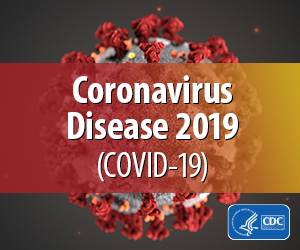The Centers for Disease Control and Prevention (CDC) recently revised federal guidance on using N95 respirators to take into account their increased availability. The tight-fitting respirators filter out 95% of airborne contaminants, including the coronavirus. To be classified as an N95 respirator, the mask must have been tested and approved by the National Institute for Occupational Safety and Health (NIOSH).
With the onset of the pandemic, N95 respirators became scarce, prompting health-care providers to adopt a wide-range of plans to reuse and decontaminate them, which had been intended for a single use before being discarded.
Among the CDC changes are:
- Highlighting that N95 respirators should be reused no more than five times, and then only when there is “crisis” in meeting demand for them.
- Stating that decontamination of N95 respirators, such as exposing them to disinfectants, is no longer an approved strategy to conserve supplies. However, sealing a respirator in a paper bag for at least 72 hours between uses is still acceptable.
- Declaring that an N95 respirator with an exhalation valve offers the same protection to the wearer as one that does not have a valve and performs the same or better than surgical masks and cloth masks.
- Using non-NIOSH-approved respirators developed by manufacturers that are not cleared by NIOSH is no longer an allowed strategy to deal with supply shortages.
The CDC’s change in guidance does not affect the Occupational Safety and Health Administration's (OSHA) policy on N95 respirators and annual respirator fit testing. According to an announcement made on April 7, 2021, so long as employers make a “good faith effort” to comply with the OSHA’s respiratory protection standard and adhere to agency guidance, OSHA will not cite employers for violations of the annual respirator fit testing standard. However, employers should note that the exception expires once the public health crisis “ends.”
Employers should note that they must continue to conduct initial fit tests when their employees are issued N95 respirators for the first time. Employers also need to remind their employees to check that their respirators seal correctly each time they put them on, and they should provide only NIOSH-approved N95 respirator models.
OSHA had been promising a new emergency temporary standard regarding new employer obligations to protect their workforces from COVID-19. However, Department of Labor (DOL) Secretary Walsh decided not to issue it yet. Employers should pay attention when that standard is announced and generally take care to stay abreast of the ever-changing legal landscape related to COVID-19 as it continues to evolve and affect their workplaces during the remainder of the year.
If you have any questions, we encourage you to reach out to your Benesch contact or one of the attorneys below to discuss.
Joseph N. Gross at jgross@beneschlaw.com or 216.363.4163.
Joseph R. Blalock at jblalock@beneschlaw.com or 614.223.9359.
***
Please note that this information is current as of the date of this Client Alert, based on the available data. However, because COVID-19’s status and updates related to the same are ongoing, we recommend real-time review of guidance distributed by the CDC and local officials.

